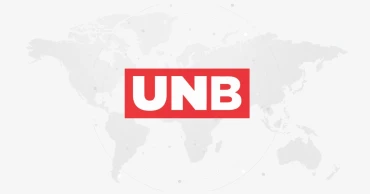safety rule
Risky way of supplying gas in cylinders: Petrobangla body for strong safety rules
A technical committee of Petrobangla recommended formulating separate safety and security guidelines to allow any private company to supply gas from Bhola to local industries as CNG (compressed natural gas).
“We’ve submitted our report to the top management of Petrobangla recently”, a member of the committee, preferring anonymity, told UNB.
He said the committee also recommended involvement of the Department of Explosive in ensuring compliance of certain security protocols. The committee also wants strong monitoring by the RPGCL to ensure specific procedures in gas transportation for motor vehicles.
The state-owned Bangladesh Oil, Gas and Mineral Corporation, or Petrobangla, formed the committee last month after three local CNG refuelling companies expressed their interest to carry natural gas in CNG form from Bhola to Dhaka in trucks and covered vans.
Read: Search for gas: Chevron plans drilling in Bibiyana’s flanked area in April
Each truck or covered van will have a good number of gas cylinders, each having 90-kg gas containing capacity.
These companies—Intraco CNG, Super CNG and Oblivious—submitted separate proposals to the Sundarban Gas Company Limited (SGCL), a Petrobangla subsidiary responsible for distribution of natural gas from Bhola field to the southern and eastern parts of the country.
The SGCL forwarded the proposals to Petrobangla for the decision.
Receiving the proposals, the Petrobangla formed a 4-member technical committee, headed by director (planning) to examine the proposal and recommend follow-up actions.
Read: Low pressure problem in gas supply to industries to be resolved: Nasrul
A senior official from Rupantarita Prakritik Gas Company Limited (RPGCL) was also kept in the committee as currently this company is responsible for import of gas through liquefied natural gas (LNG) and also for issuing permission for setting up CNG stations.
Another member of the committee said that ensuring safety is a must. Otherwise, it will be impossible to check anarchy and risk in this business as the gas will be carried through highways.
The issue of the supply of gas from Bhola came to the focus following the Prime Minister’s Energy Advisor Dr Tawfiq-e-Elahi Chowdhury’s recent assurance to a gathering of top business leaders to supply such gas within 2-3 months.
Petrobangla officials said that when the country has been experiencing a nagging gas crisis, the Bhola gas field has surplus production capacity which remains unutilised due to supply mechanisms.
Read: Can’t import 400 MMCFD gas as per businessmen’s demand: Energy Advisor
The gas field’s production capacity is 170 million cubic feet per day (MMCFD) while it produces 90 MMCFD. So easily, 80 MMCFD gas could be supplied to the national network if safe transportation is ensured, Petrobangla chairman Nazmul Ahsan recently told reporters.
At present, the country produces 2,700 MMCFD gas against a demand of 3,500 MMCFD and the deficit is about 800 MMCFD.
Currently, transportation of natural gas in CNG form by-road is prohibited considering its risk for major explosion as CNG is a form of gas processed by compressing the natural gas at 3000 PSI (pounds per square inch).
Energy experts said transportation of natural gas in CNG cylinders is not allowed in normal trucks because of its high-pressure characteristics.
Read More: Petrobangla to get Tk 2000 crore from GDF to import LNG
About the option of bringing gas from Bhola through CNG form, eminent energy expert Dr M Tamim said it will be too dangerous to carry CNG through normal trucks having cylinders, which is currently being practised by different garment and textile factories.
There are some specialised barge-mounted CNG carriers which could be allowed under certain rules and regulations.
“This kind of business needs some specific technical and technological process to be set up to ensure its safety as the CNG is of highly compressed gas of 3000 psi”, he told UNB.
Installation of such a process might not be possible within a short period of 3 or 4 months, he added.
Read More: Petrobangla starts drilling in Shahbazpur Gas Field
Despite prohibition, some textile and garment factories collect natural gas from refuelling stations through small containers, mounted on trucks, to meet their industrial needs against the backdrop of the gas crisis.
In this case, a truck carries 30-50 CNG cylinders and each cylinder has 90 kg of compressed gas bottling capacity.
This kind of CNG transportation is highly risky. An incident of explosion happened at a CNG re-fuelling stations in Gazipur in which for people were killed on October 13. Explosion occurred when a garment factory was injecting gas into cylinders in illegal from the gas station.
Despite this incident, recently, three export-oriented business bodies—Bangladesh Garment Manufacturers and Exporters Association (BGMEA), Bangladesh Ceramic Manufacturers & Exporters Association (BCMEA) and Bangladesh Knitwear Manufacturers and Exporters Association (BKMEA) — requested the Bangladesh CNG Filling Station & Conversion Workshop Owners Association to supply natural gas to their member industries through cylinders.
Read More: No additional LNG supply from Qatar before 2025: Petrobangla
But CNG filling station owners rejected the request, saying that entertaining such requests is not possible as the existing law in Bangladesh does not permit them to supply CNG through cylinders.
3 years ago

